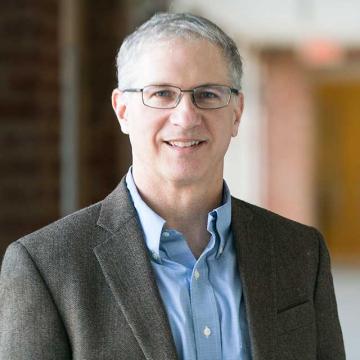Lessons from the Cuban Missile Crisis
What Donald Trump can learn from the two most dangerous weeks in history
Read the full article in the Washington Post

With the clouds of war darkening over the Korean Peninsula and an impulsive and untested president in the Oval Office, the threat of nuclear war looms larger than it has in a generation. Many Americans have never felt—genuinely never felt—the apocalyptic fear of nuclear war. Now that such threats and fears have returned, it’s worth revisiting lessons from that moment, 55 years ago, when the world looked into the abyss of Armageddon.
For the better part of two weeks in October 1962, the fate of civilization hung in the balance as a handful of officials—and ultimately just two individuals, President John F. Kennedy and Soviet Premier Nikita S. Khrushchev—held the levers of power that moved the world toward and then away from nuclear war. Throughout the crisis over Soviet missiles in Cuba, Kennedy and Khrushchev displayed qualities of rashness and restraint, of energy and empathy, that contributed to the onset and the resolution of the most dangerous moment in the Cold War—indeed, in all of human history.
For Kennedy, Cuba was at root a political matter. Scolding Republicans during the 1960 election for their handling of Cuban revolutionary Fidel Castro, who had cozied up to Moscow after taking power in 1959, Kennedy called for overthrowing the new regime. His campaign rhetoric sharpened the politics of Cold War anti-Communism, particularly with respect to Cuba. Combined with questions about his youth, inexperience, and mandate for power, such talk narrowed Kennedy’s room to maneuver once he entered the White House.
It did not take long for this rhetoric to have an impact on Cuba. Less than 90 days into his presidency, Kennedy supported—with key modifications and not much enthusiasm—the CIA operation at the Bay of Pigs. But that debacle, disastrous as it was, had little immediate impact on Kennedy’s public standing. His approval rating soared to more than 80 percent, offering political cover as he endured a string of Cold War crises: a testy summit with Khrushchev, the construction of a wall dividing Berlin, a confrontation with Russian tanks at Berlin’s “Checkpoint Charlie,” and rolling crises in Laos and Vietnam.
Against this backdrop, Kennedy launched a conventional and nuclear arms buildup, and publicly disclosed Washington’s advantage in strategic weapons. He also mounted a covert operation—code-named Mongoose—to drive the Moscow-backed Castro regime from power. Each of these measures sought to shore up Western positions through a “flexible response” to the Communist challenge in both the developing world and in the heart of Europe. No less than the “survival and the success of liberty” was at stake, as Kennedy put it, in this “hour of maximum danger.”
Read the full article
